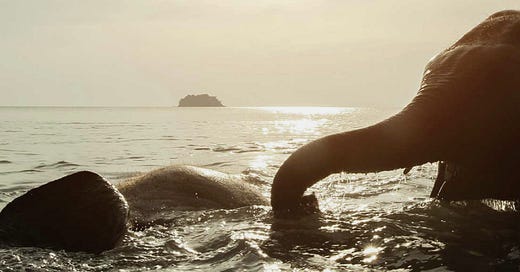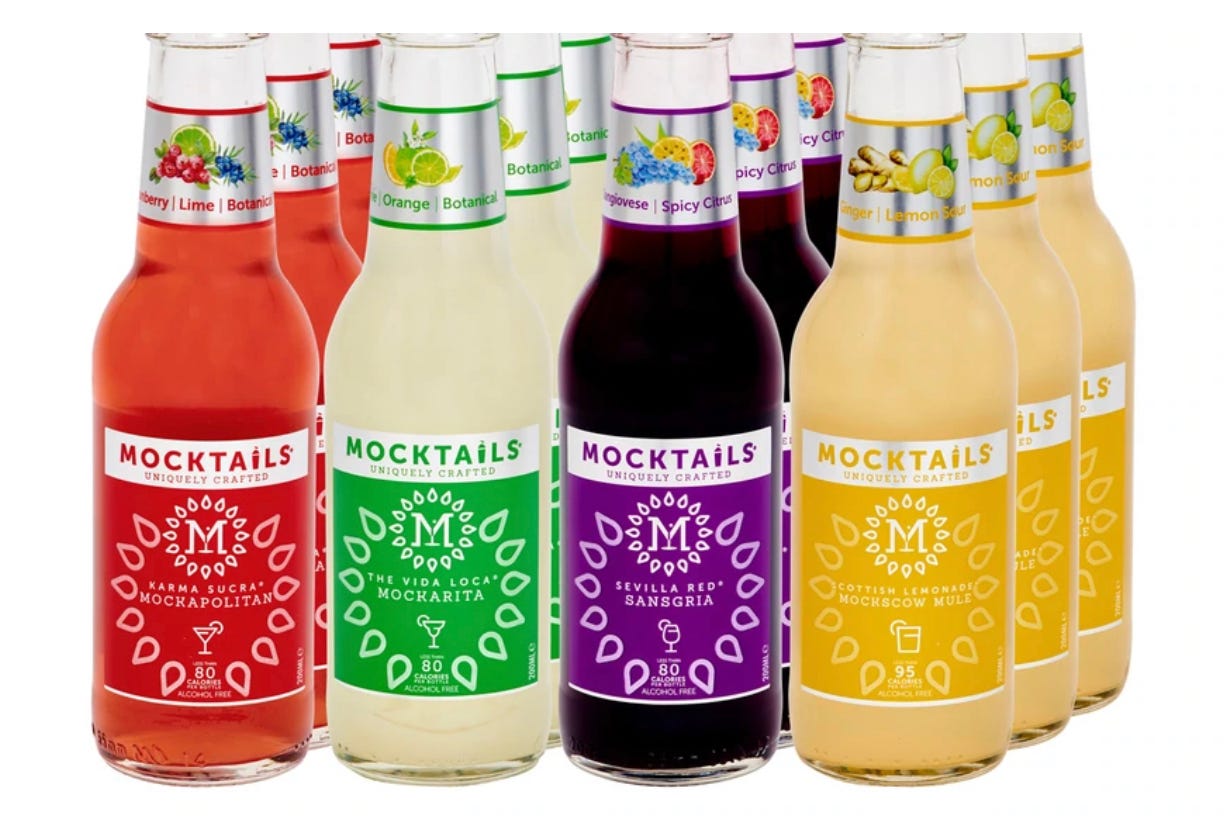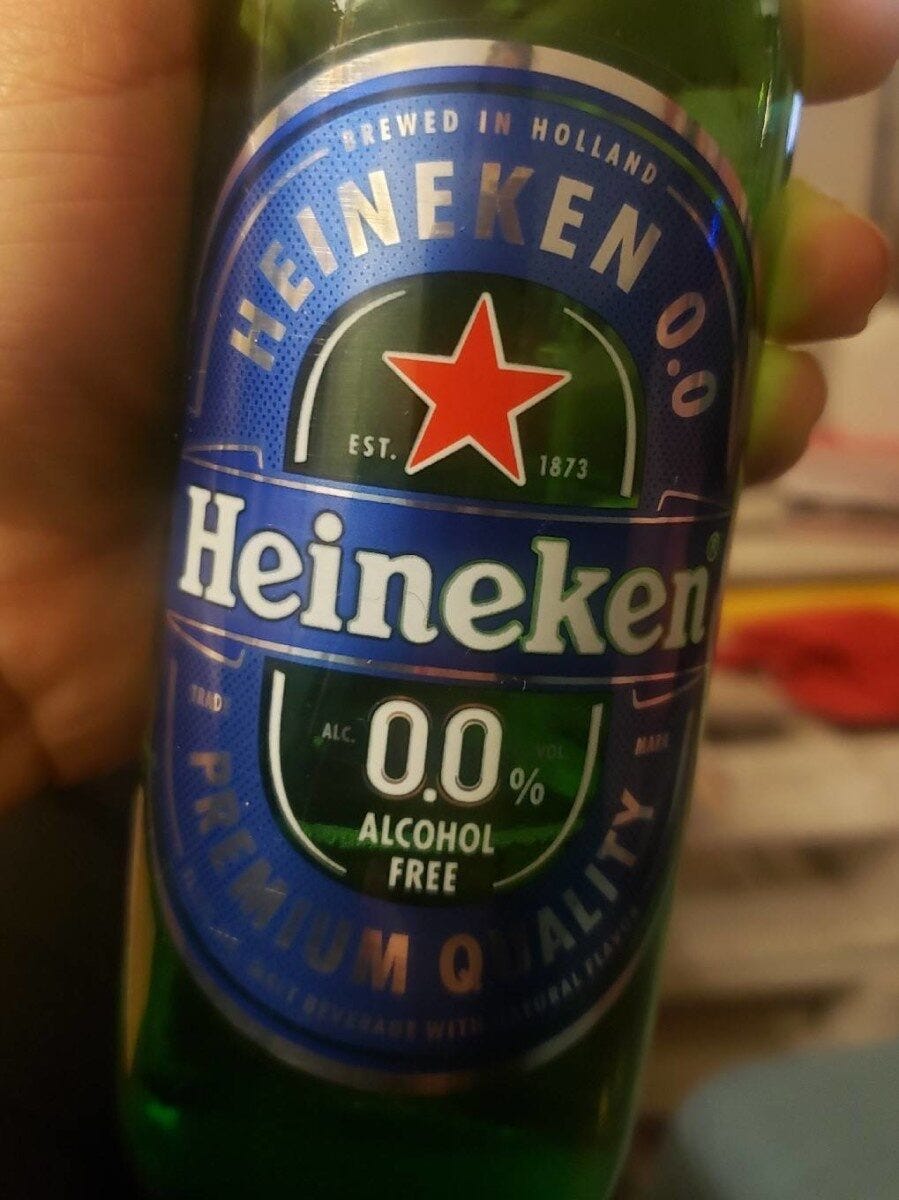17 January 2022. Climate | Alcohol
Making the climate transition happen | The rise of ‘faux booze’
Welcome to Just Two Things, which I try to publish daily, five days a week. Some links may also appear on my blog from time to time. Links to the main articles are in cross-heads as well as the story.
#1: Making the climate transition happen
The novelist Kim Stanley Robinson popped up on the Accidental Gods podcast after COP26, and I was able to catch up with it over the break. There are some points—on both COP and on climate change—that are worth sharing. Incidentally, his book Ministry for the Future is now out in paperback. The interviewer was Manda Scott.
On Cop 26 and ‘elites’. The generic description of those attending COP26 as being ‘elites’ is unhelpful. On the one hand, there are technical experts of all kinds—from climate scientists to diplomats—who are generally trying to make this process work. On the other hand there are (for example) lobbyists and fossil fuel representatives who are trying to throw grit into the process. Using one word to describe these people is unhelpful to how we understand both people and process.
By the way, Robinson’s experience at COP26–he was the only novelist invited—was that the more informed the experts were, the more fearful they were.
COP26 is the only process we have got. Yes, the COP process is imperfect, partly because of the requirement that everyone agrees, but it is the only process we have. Mechanisms for getting nation states in an international capitalist economy to agree on how to deal with a global problem are bound to be imperfect. But: the biggest problem is that we don’t have enough time to work at the speed that the COP process works at.
Maybe geo-engineering is inevitable. Because of the gap between time and speed of process, Robinson seemed to imply that some form of geo-engineering is inevitable—to keep the temperature down by enough during a transition to delay the moment of irreversible climate change. It’s just about buying time—notwithstanding all the problems involved.
(Image from Accidental Gods)
Use whatever we have to hand. Because we haven’t got time, we need to use whatever mechanisms we can get our hands on to make the transition work. Because we’re in a capitalist society (and it would definitely take more time than we have to reconstruct this) Robinson is in favour of creating market-type mechanisms that allow us to pay for “climate goods” such as rewilding, reforestation, regenerative agriculture, and so on, to incentivise them. I’m guessing that these might work a little like impact bonds.
There are ways to do this, as we have learned from the process of quantitative easing. Robinson talks about the idea of the “carbon coin”—backed by central banks—that can be used to pay for such “goods”. It turns out that a group of central bankers has already been working on something along these lines. This is good, because (time, again) we need to be working with innovations that are pretty much there.
And Robinson pointed out that he’d written Ministry for the Future in 2019, before the pandemic, and that one of the things that the pandemic had accelerated was social and institutional innovation.
Paying off oil producers. Controversially, this might include paying oil rich nations, such as Russia and the Gulf States, to leave their oil in the ground, since carbon abatement matters as much as carbon reduction. Robinson suggested that payments would be spread over 100 years, or the projected life of the reserves. Perhaps it helps here that most reserves are held by nation states, but many of them are fragile, even with their existing oil revenues.
They didn’t discuss it on the podcast, but if you accept the principle, one of the tough points of negotiation is getting the price right. If oil is becoming a stranded asset, you don’t want to pay full price to keep it in the ground. But you might have to front-load payments to make the deal stick: sometime you do just have to stuff people’s mouths with gold.
Doing everything. We also need to do everything else that we can do. This might include carbon capture from the air, and more trees, and other engineering solutions, such as pumping water out from under glaciers to refreeze them (especially in Antarctica and Greenland). This would involve using oil company expertise, albeit in the toughest of regions.
30x30. Robinson is a big fan of “30x30”, the scheme initially proposed by the biologist E.O. Wilson (who died over the holidays) that 30% of the earth’s surface should be protected by 2030. Robinson sees this as an essential companion piece to the human-focused attempts to reduce global heating, since it gives us a chance of of protecting enough of the planet’s biodiversity to avoid the worst effects of the Sixth Great Extinction. Because, regardless of whatever you took away from Jurassic Park, once these species are extinct, they’re not coming back.
#2: The rise of ‘faux booze’
'Dry January’ seems to have become a thing these days, but sitting behind it is a bigger trend: a shift, generally, to drinking less alcohol. This also seems to be a generational thing: Millennials and Gen Zers drink less as a matter of routine, even if they still binge from time to time.
This is also quite a long term social shift. The large amount of alcohol consumed by the upper and middle classes in the 1950s and 1960s (often strong alcohol) seems to be reflected well enough in the fiction of the time, although certainly the arrival of affordable wine in the 1970s and the 1980s, and the long decline of the pub, seems to have changed the form of drinking if not necessarily the quantities.
But as people learn more about the effects of alcohol on health, and as exercise, wellbeing, and rest become more significant parts of the social lexicon, our relationship to alcohol is changing.
(Mocktails: apparently the official partner of Dry January UK. drinkmocktails.co.uk)
Anyway, this is a long intro to a short piece by the US trends people Axios on the growth of the adult non-alcoholic drinks market—‘faux booze,’ they call it—in the US.
The qualitative evidence includes Heineken’s sponsorship deal with Formula 1 to promote its 0.0 range, and Katy Perry’s new line of non-alcoholic aperitifs. Axios quotes Nick Bodkins, the CEO of a ‘faux booze’ retail start-up called Boisson as suggesting that it’s a relatively easy market to sell to:
"Most of our customers are taking a night off or a drink off — they’re not saying 'I'm never going to drink again," Bodkins said.
Boisson sells 125 alcohol-free brands, and the way Bodkins describes it it sounds a bit like flexitarian food, where people substitute out a meat-based meal and have a vegetarian one instead. We’re not in a new age of temperance.
The growth rates are impressive. Nielsen, which tracks such things, reports sales increases for non-alcoholic beverages up by one-third in terms of value in the year to last November, up to $331 million. (The low alcohol drinks sector is about ten times as large as this, and growing much more slowly). If that sounds like a lot, it’s a tiny number compared to the sales of alcohol drinks—3.5% of the total. Nielsen also notes that only 5% of households are buyers.
As well as the health trends, which influence the demand side, Axios also notes changes in the supply side. The market has been growing since the mid-2010s, and Diageo bought the market leader in 2019 (and introduced a zero alcohol Guinness last year). More broadly, as Neilsen says, “there are now more no/low alcoholic wines, spirits and beer options available than ever before."
(Heineken 0.0. Photo: https://world.openfoodfacts.org/product/0072890006196/heineken-zero)
Updates and notes from readers I mentioned the Labrador Systems ‘Retriever’ robot table on Friday. There’s a much more detailed report at IEEE Spectrum. It looks like a genuinely useful robot product.
Thanks to Bridgette Engeler, who mentioned Mike Garson’s annual Bowie Celebration to me in response to my piece on Bowie last Monday. Garson played keyboards with Bowie for something like 40 years. Sadly the only online video I can find is Duran Duran doing a predictably lame version of ‘Five Years’. Tastes may vary here, of course.
And one more link on my piece of Mark Boyle and living without complex technology. Jason Dinsdale tells me that Ben Fogle went to visit Boyle in Ireland for Channel 5, and the piece is still online on Five’s streaming site. I’m not sure if this works outside of the UK.
j2t#244
If you are enjoying Just Two Things, please do send it on to a friend or colleague.





